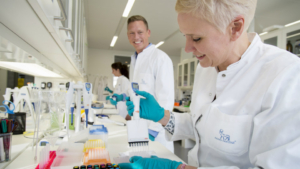
For real innovation, the pieces of the puzzle have to fit
I co-chaired a session at the Commission's Innovation in Healthcare' conference recently, and learned a very interesting lesson there that is overwhelmingly obvious, yet overlooked in our continuing mission to become one Europe.
The session looked at how business skills are developed in the EU what we have, what we need and how we get it. I expected specific skills to be targeted as missing and needing to be developed. Wrong. The overwhelming conclusion from our panel of EC, pharma, university and SME geniuses was that Europe pretty much has all the skills that it needs, but each expert is kept in his or her own little world, creating exceptional skills within a very narrow space.
The researcher pushed to publish, the SME that must meet the next milestone, the clinician locked into the healthcare system, the pharma guy stuck in an antique drug-discovery process the list is long. For the last 25 years, training has been poured into a multitude of areas to ensure that the researcher becomes an entrepreneur, an SME CEO knows everything about FDA approval, and TTOs are gurus of industry development. It hasn’t really worked. Applying a thin layer of knowledge does not guarantee absorption. Why should a researcher, measured by publication success, also become an expert on commercial implications and plan research now for exploitation in 10 years time?
The blindingly obvious conclusion from the panel was not to train people a bit harder, but physically to get them into other worlds and bring other worlds to them. Entrepreneurs in residence at universities, academic researchers placed in SMEs and pharma, clinicians on the boards of companies, pharma people in universities and SMEs. It’s not going to happen on its own, and it hasn’t yet so we need to make it happen. Horizon 2020 should make staff exchanges bet-
ween partners in collaborative projects compulsory, up numbers of industry-academia research fellowships, increase pharma staff working in small company partners there is loads we could do.
It’s not going to cost more money. The price is instead in the mindset. Europe talks the talk, but does it really walk the walk on direct integration of different worlds in the healthcare chain? People are so insulated in their own worlds, and the disruptive technology/attitudes of people from other worlds are not welcome. However, the evidence from the panel and audience confirmed direct integration as the most effective way to bring new skills and knowledge into each step of the chain.
So Europe are you listening? Stop fretting about growing new skills through the age-old training and have an MBA’ culture to create your vision of the perfect business mind, and start moving existing skills about between different bits of the healthcare sector. They don’t bite, and it might prove the only effective way to help them integrate.




 Beiersdorf
Beiersdorf